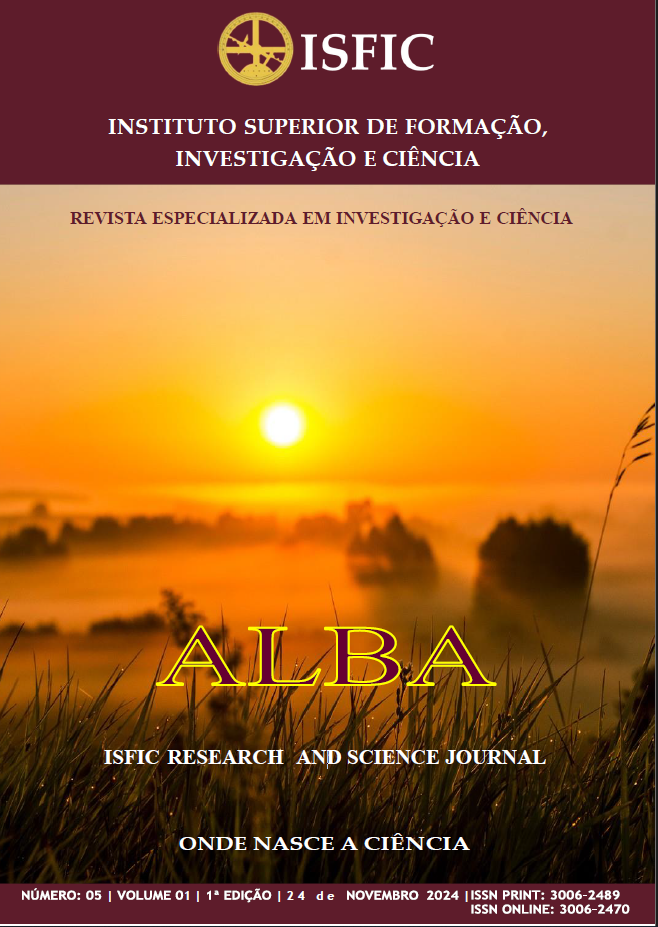Analysis of economic obscurantism in artisan mining and its economic and social impacts for the communities of the Manica district – Mozambique
Keywords:
Economic obscurantism, Artisanal mining, Economic impacts, Local communitiesAbstract
This article on the analysis of economic obscurantism in artisanal gold mining in the Manica district aims to analyse the causes of economic obscurantism in artisanal gold mining in Manica. The research revealed that the marginalisation and lack of recognition of the economic and social benefits of artisanal gold mining in public, academic and economic discussions are attributed to several interconnected causes, most notably the informality of the sector, which operates outside the legal framework, making it difficult to regulate and legitimise, fuelling a negative perception of the activity. Discussions tend to focus on the negative impacts, such as environmental degradation, overshadowing the socio-economic benefits visible in Manica's communities, such as job creation, increased family income and improved living conditions (commerce and masonry houses). The social stigmatisation linked to artisanal mining, associated with illegal practices, reinforces this marginalisation and distracts attention from the positive aspects. The scarcity of data documenting the economic benefits of artisanal mining prevents this sector from being included in academic debates and public policies. The lack of transparency in the value chains means that the gains generated are invisible, making it difficult to recognise the activity as a relevant source of development. The lack of institutional support and inadequate public policies perpetuate marginalisation, with approaches that tend to be more punitive than inclusive. Policymakers' limited perception of the potential of artisanal mining results in its exclusion from debates on economic development, reinforcing the cycle of obscurantism that undermines recognition of its benefits. It is imperative to promote a new narrative that valorises artisanal mining as a legitimate economic practice and essential for local development.
Downloads
References
Amankwah, R., & Amn-sackey, I. (2003). The Role of Artisanal and Small-Scale Mining in the Global Economy. Journal of Cleaner Production, 11(3), 313-322.
Amartya Sen. (2000). Development as Freedom. New York: Knopf.
Banco Mundial. (2013). Mineria Artesanal e Pequena Escala em Moçambique. Retrieved from Banco Mundial
Buxton, A. (2013). Responding to the challenge of artisanal and small-scale mining: How can knowledge networks help? IIED.
Chomsky, N. (2014). The Death of American Culture. New York: Seven Stories Press.
Hernando de Soto. (1989). The Other Path: The Invisible Revolution in the Third World. New York: Harper & Row.
Hilson, G. (2009). Small-Scale Mining, Poverty and Development in Sub-Saharan Africa: An Overview. Resources Policy, 34(1), 1-3.
Hilson, G., & McQuilken, J. (2014). Four decades of support for artisanal and small-scale mining in sub-Saharan Africa: A critical review. The Extractive Industries and Society, 1(1), 104-118
Houasis, D. (2001). The Impact of Mining on the Environment and Communities. Environmental Monitoring and Assessment, 67(1), 3-9.
Kant, I. (1784). What is Enlightenment? In Political Writings (pp. 54-60). Cambridge University Press.
Selemane, A. (2010). Desafios da Mineração Artesanal em Moçambique: O Caso do Ouro. Cadernos de Geografia, 8(1), 21-30.
Siegel, S., & Viegas, D. (2010). Mining, Community and the Environment: A Study of Mining Activities in Mozambique. Journal of Sustainable Development, 3(4), 118-134.
Silver, H. (1994). The Coming Crisis: International Economic Relations. International Affairs, 70(3), 487-507.
Viegas, D. (2010). Community Development and Mining in Mozambique: Opportunities and Challenges. African Journal of Environmental Science and Technology, 4(5), 278-284







